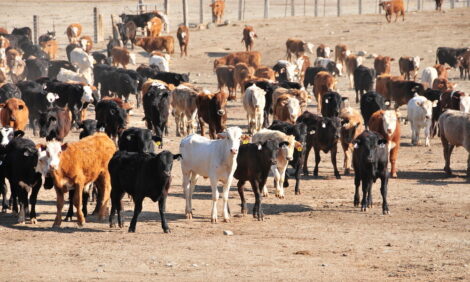



Tests Proposed For 'Eradicated' Cattle Disease
CANADA - A ministry of environment wildlife veterinarian is proposing a lethal sampling programme to determine if anaplasmosis — a disease once thought eradicated in Canada — is resident in Nicola Valley deer.According to The Vancouver Sun, Dr Helen Schwantje has said that the plan is in its preliminary stages and nothing has been approved by government. However, she is proposing ministry staff shoot between 20 and 50 deer from Nicola Valley ranches so testing for anaplasmosis can be conducted at a ministry of agriculture laboratory.
The Nicola Valley is one of three places in Canada where cattle have tested positive for the disease, initially detected in cattle during a random survey at Douglas Lake Ranch.
Further investigation found 13 of 5,700 animals tested at other ranches in the valley had the disease.
Until now, anaplasmosis, which is transmitted primarily by ticks, was thought to be restricted to cattle in warmer climates, including the US. It can also be transmitted by tainted needles and tools used by ranchers, but is not otherwise contagious.
According to the Canadian Food Inspection Agency (CFIA) anaplasmosis poses no threat to human health. Animals that test positive often exhibit no signs of the disease; afflicted cattle are slaughtered and processed through the regular supply chain.
Still, the concern that the disease has spread to the local deer population persists. While deer rarely exhibit symptoms, they could pass it on to more vulnerable species, such as the California big horn sheep in the Interior.
“We need to know if the disease is out there,” said Dr Schwantje.
She also cautioned that the measure needs support from valley landowners and residents.
Rancher Judy Guichon said she is in favour of the sampling program because she believes anaplasmosis is resident in ticks and deer in Nicola Valley. If that is proven there is little point to the CFIA continuing its quarantine and eradication program for anaplasmosis because it will cycle back and forth between wild and domestic animals.
A programme to encourage hunters who kill a deer to submit a blood sample using a special kit has so far netted just one sample.
Dr Schwantje said a live trapping programme would be too costly. Phil Hallinan, past president of the British Columbian Wildlife Federation, said he is not familiar with the proposal.But based on his respect for Dr Schwantje’s work, he believes the lethal sampling programme has value.
TheCattleSite News Desk


